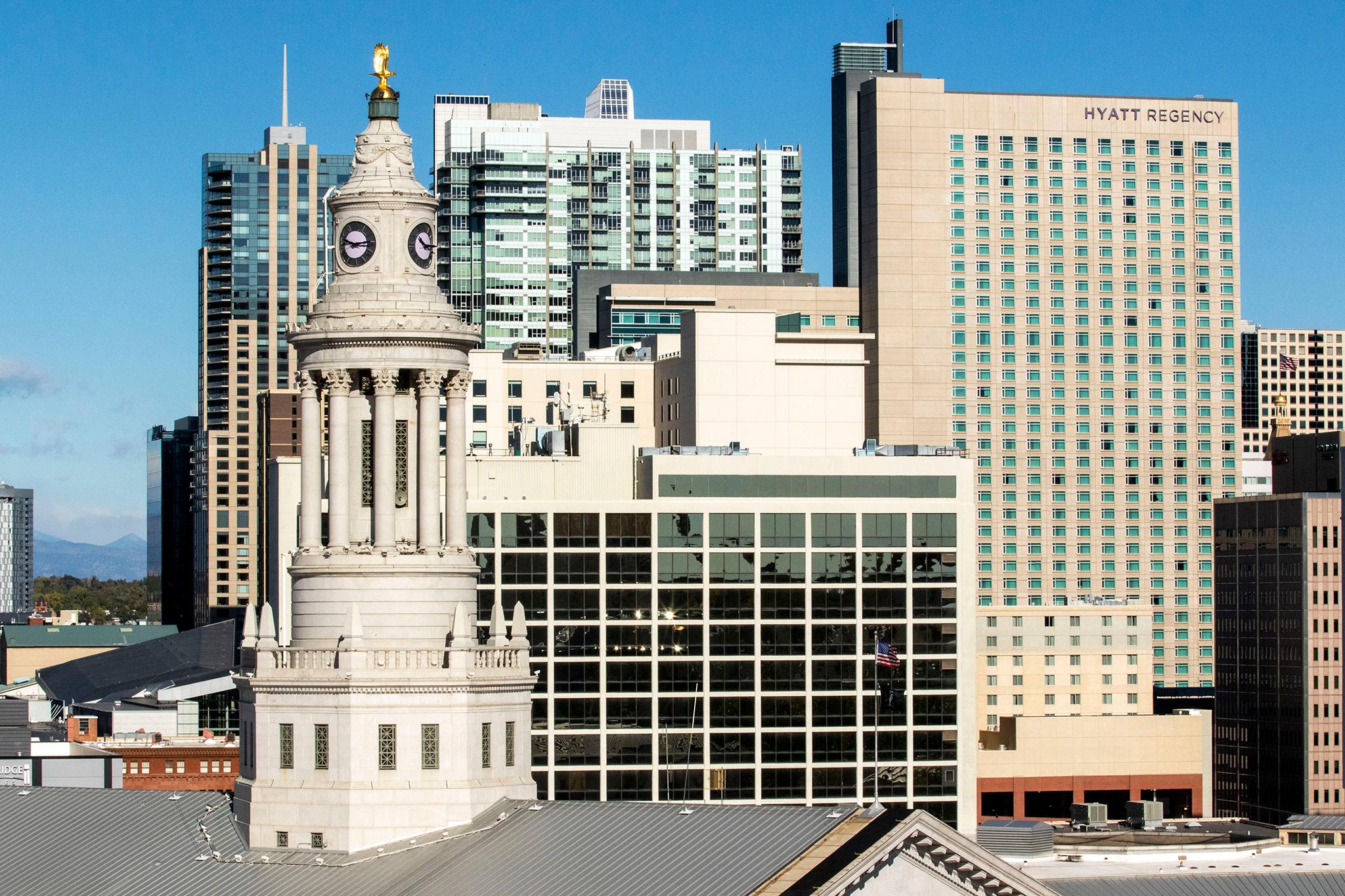In its latest attempt to fight climate change, Denver City Council unanimously approved a new ordinance to supercharge the city's big buildings.
Most of the city's commercial and multifamily buildings currently rely on natural gas, a methane-based fossil fuel, to heat water and warm indoor spaces. The measure would require owners to replace those systems with electric alternatives when they reach the end of their service life. Buildings over 25,000 square feet must also cut overall energy usage 30% by 2030.
"This is a really big deal because commercial and multifamily buildings are almost half of Denver's greenhouse gas emissions," said Katrina Managan, buildings team lead for the Office of Climate Action, Sustainability and Resiliency. "This ordinance is going to cut that 80% by 2040,"
Managan said the city crafted the ordinance alongside the New Buildings Institute, a Portland-based advocacy group that keeps tabs on municipal climate efforts across the county. The organization believes Denver is the first to require electric heating equipment in existing buildings upon replacement.
The rule comes as many climate scientists have called for a push to "electrify everything" and take full advantage of carbon-free energy sources like wind and solar. Denver plans to follow the advice, but so far, it's adopted a different playbook than other deep-blue cities, like Berkeley, Calif.
In 2019, the California community grabbed headlines when it banned natural gas hookups in new construction. Rather than forbid natural gas, Denver plans to use its building code to encourage electric stoves and heaters over the next decade, with requirements set for 2024 for new homes and 2027 for new commercial buildings.
To arrive at a strategy for existing buildings, the city assembled a task force with members from Xcel Energy, environmental groups, building owners, unions and the oil and gas industry. In August, the group recommended another gradual strategy with some wiggle room for private businesses.
The final ordinance approved Monday requires large-building owners to replace some equipment, like natural gas furnaces or individual water heaters, with electric heat pumps after 2025. The same rule applies to tougher-to-electrify systems, like boilers and central heaters, after 2027.
Under the rules, building owners could still apply for an exemption if an electric heat pump system is significantly more expensive than a natural gas replacement. Gas-powered appliances can also be kept as a secondary heating source, ready to kick in on especially cold days.
"As a city, we always look to our community to help us find the balance between being bold and practical," Managan said.












